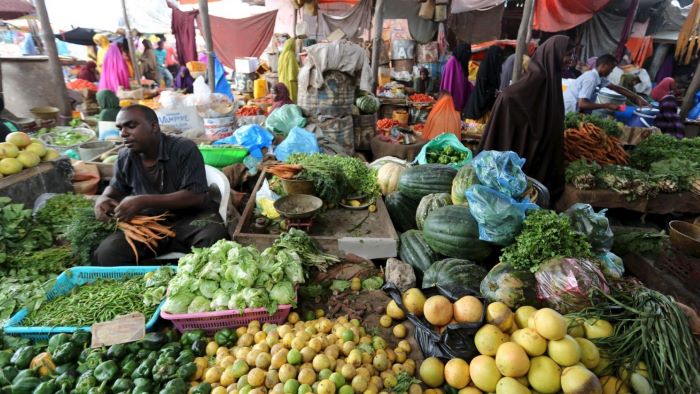The United Nations Food and Agriculture Organization (FAO) and Liberia’s Ministry of Commerce have signed a two-year Technical Cooperation Program intended to strengthen National Food Control System by ensuring food safety and trade improvement.
According to media reports, the signing was preceded by the formulation of close consultations and support from other line Ministries and Agencies of the Liberian government, including Health, Agriculture and the Liberia Chambers of Commerce.A Commerce Ministry release says the 24-month Technical Cooperation Program (TCP) has a budget of US $348,000.00.
FAO Representative to Liberia, Mariatou Njei says the Project was formulated as a result of a discussion held between Liberia’s Foreign Minister, Gbehzohngar Findley and FAO Director General in October 2018, about food security and food safety in Liberia.
Food Control and Safety
She reiterated the importance of food safety in ensuring food stays safe at every stage of its chain; from production to harvest, processing, storage, and distribution, and all the way to preparation and consumption. Ms. Njei also observed that the TCP’s close alignment with Pillar 2 of the Pro-poor Agenda for Prosperity and Development (PAPD) and with FAO’s Strategic Objective 4, will enable more inclusive and efficient agricultural food systems.
The FAO Country Representative also discloses that the Technical Cooperation Project (TCP) is in line with her Organization’s Country Program Framework (CPF) Output 1.2 Systems, established for effective monitoring and surveillance food security through FAO support.
On the other hand, Commerce and Industry Minister, Wilson K. Tarpeh says the CDC-led Government has invested the little it has in the National Standards Laboratory to ensure effective quality standards. Prof. Tarpeh further lauded the FAO for the US $348,000.00 grant and expresses Government’s appreciation for the gesture.
The objective of the Project includes addressing key challenges in Liberia’s food control system and several other areas through strengthened capacity, including inspection methods and approaches; application of the Hazard Analysis Critical Control Point (HACCP) System; meat inspection, food sampling, monitoring, and surveillance.








